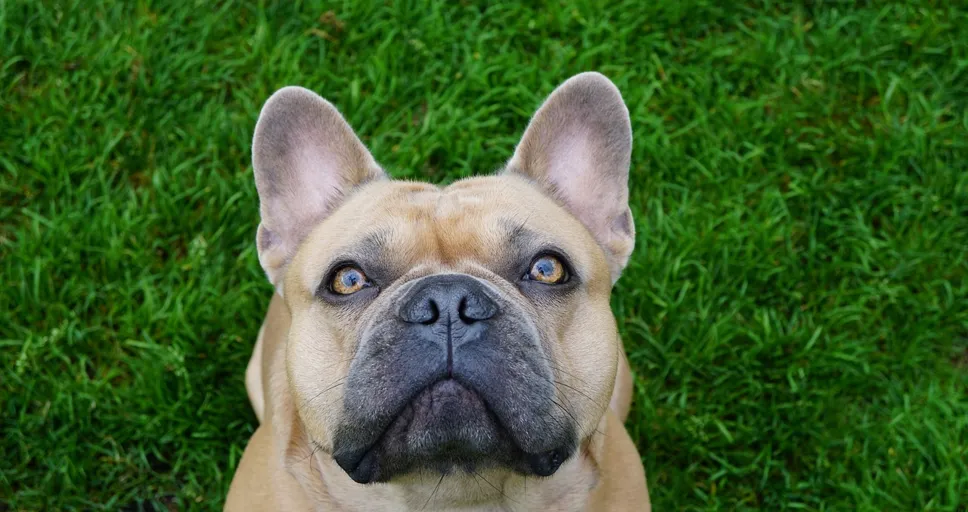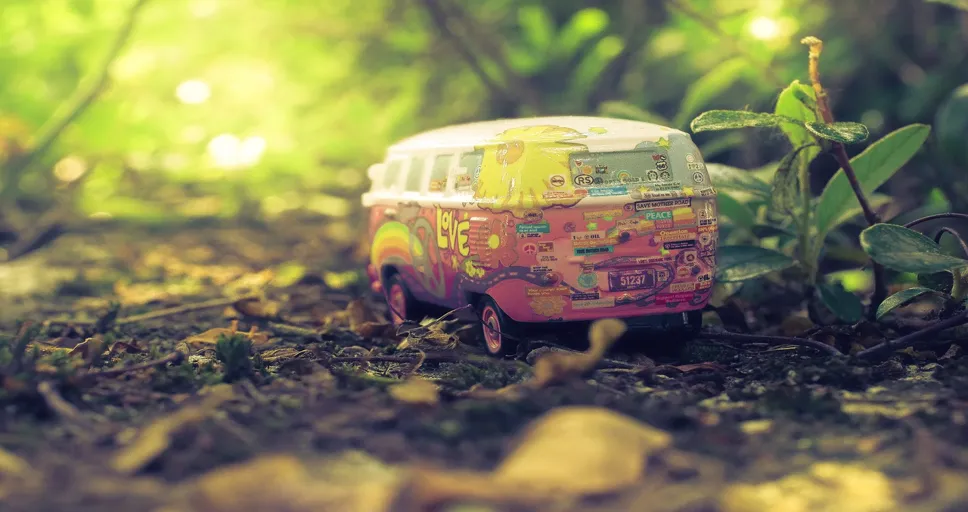Are there miniature French Bulldogs? You bet your sweet doggie biscuit we’re going to sniff out the truth behind this intriguing question! As we unleash our curiosity, let’s embark on a playful romp through the world of these pint-sized pooches. Could they be the next big (or should I say, ‘mini’) thing in the world of dog lovers? Stick around, as we dig into their origins, debunk some myths, and discover just what goes into the making of a miniature French Bulldog. With their smushed faces and bat-like ears, if mini versions exist, they’d be hard to resist, right? Let’s find out together!
- Miniature French Bulldogs are not officially recognized by major kennel clubs.
- Breeders may claim to produce “mini” French Bulldogs by selectively breeding smaller individuals.
- This practice raises health concerns, including fragile bones and breathing issues, due to prioritizing size over health.
- The term “miniature” in these dogs is more about selective breeding and marketing than a distinct breed.
- Prospective owners should be cautious and informed about potential health risks associated with downsized breeds.
Table of Contents
What Are There Miniature French Bulldogs?
So, are there miniature French Bulldogs, or is it just a myth circled around by hopeful pet lovers and opportunistic breeders? Let’s dive into the bulldog-shaped rabbit hole and uncover what these little munchkins are all about—if they’re real, that is.
The term “miniature French Bulldog” often pops up in discussions, sparking curiosity and raising eyebrows. These supposed mini-mutts are said to be a scaled-down version of the classic French Bulldog, complete with all the adorable features we know and love but in a smaller package. But here’s the scoop: strictly speaking, the official breed standards don’t recognize any “miniature” variant of the French Bulldog. That’s right, the American Kennel Club and their posh pals across the pond at The Kennel Club in the UK only give the nod to the standard-sized Frenchies we’re familiar with.
However, the plot thickens when you learn that some breeders claim to have bred French Bulldogs to be smaller than usual. They argue that through selective breeding—picking the smallest pups from litters and breeding them with other small ones—they can gradually miniaturize the breed. But this isn’t without controversy or complication.
This method isn’t just about creating a pocket-sized pooch for Instagram snaps and TikTok fame. It can have significant implications for the health and well-being of these dogs. Smaller stature might sound cute and apartment-friendly, but it can also lead to a host of health issues, from fragile bones to breathing difficulties. Not to mention, when breeders focus on size over health, the dogs can suffer from a litany of genetic disorders. It’s a canine conundrum!
In the ever-evolving narrative of “are there miniature French Bulldogs,” it’s clear that while you can find smaller-than-average French Bulldogs, the existence of a true miniature breed is more fiction than fact. Breeders might market them under the mini label, but buyer beware: these tinier versions are more about selective breeding practices and less about an officially recognized breed.
So, the next time someone mentions a miniature French Bulldog, arm yourself with the facts. They might be small, they might be cute, but they’re not an official breed. Just a product of our obsession with all things tiny and adorable.
Genetics and Breeding
When the question pops up, “are there miniature French Bulldogs?” the real dirt is in the DNA. Breeding these pups down to a pint-size involves a whirlwind of genetics that might just make your head spin faster than a Frenchie chasing its tail.
Let’s break it down: French Bulldogs, those adorable, snorty bundles of joy, come with a pretty set genetic blueprint. Breeders interested in producing smaller Frenchies are essentially playing a game of genetic Tetris. They aim to match genes from smaller dogs in hopes of downsizing the breed incrementally over generations. But it’s not just about picking the runts of the litter. Oh no, it involves meticulous selection, understanding of genetics, and a bit of luck.
Now, for the nitty-gritty—breeders might use terms like “toy” and “miniature” to sprinkle a little marketing magic on their litters, but what’s going on at the genetic level is a cocktail of selective breeding practices. They might mix in genes from smaller breeds, but here’s the kicker: this isn’t just mixing paint colors. Introducing other breeds can shuffle the genetic deck in ways that might dilute some of the quintessential French Bulldog traits that owners know and love.
And here’s a plot twist: the quest for miniaturization could be hiding behind a mask called ‘breeding for health’. Yes, breeding smaller dogs might mean reducing some health issues associated with the standard French Bulldog—think less weight on those chunky little joints. But, and it’s a big but, tinkering with genetics like you’re in a sci-fi movie can introduce a whole new suite of health problems. It’s a bit like editing a photo on your phone—zoom in too much, and things start to get blurry.
So, as we delve into whether there are miniature French Bulldogs, remember that behind every adorable, Instagram-worthy pup is a complex tapestry of genetics and breeding decisions. It’s a fascinating world, full of potential and pitfalls, where science meets sweet, sweet puppy love. But always, always question the breeding behind those puppy dog eyes.
Health Considerations

Diving into the health considerations, we find ourselves asking again, “Are there miniature French Bulldogs?” and more importantly, “What’s the deal with their health?” Because let’s face it, while the idea of a French Bulldog that fits in a teacup might set your heart aflutter, it’s crucial to consider if their health is fluttering down too.
Now, standard French Bulldogs are already the poster pups for a plethora of potential health woes—bless their hearts. They’re charming and lovable but packed with issues from their squished noses to their rolly-polly bodies. Shrinking them down to a mini size sounds cute but rings about a dozen health alarm bells.
First off, when breeders aim for that adorable miniaturization, they might be inadvertently doubling down on some genetic predispositions. Think about it: these dogs can already have a hard time catching a breath with their brachycephalic (read: flat-faced) issues, so making them smaller doesn’t exactly ease their wheezing. It’s like taking a cramped apartment and then saying, “Hey, let’s bring in more furniture!”
And then there’s the bone and joint situation. French Bulldogs have this charming way of waddling into your heart, but with smaller bones and potentially less muscle mass, miniature Frenchies could face even more orthopedic issues than their larger cousins. We’re talking risks of fractures, dislocated joints, and the dreaded spinal disorders. It’s like every step they take is a tiny, precarious adventure.
But wait, there’s more—because of course, there is. Breeding for smaller size can sometimes put these pups at a higher risk for heart defects, respiratory issues, and other organ problems. It’s the whole “good things come in small packages” mantra taken a bit too literally, where the package might be cute but is bursting at the seams with health issues.
So, while the prospect of miniature French Bulldogs might tickle your fancy, it’s laden with a serious side of health considerations. These tiny titans are likely facing giant battles when it comes to their well-being. If you’re pondering over a mini Frenchie, remember: their health might just be as compact as their stature.
Legal and Ethical Concerns
When wrestling with the question, “Are there miniature French Bulldogs?” it’s crucial to tug at the leash of the legal and ethical concerns tied to breeding these wee pups. Sure, the thought of a mini Frenchie might set your heart on a merry little jig, but the dance of legality and morality is more complex than figuring out the latest TikTok trend.
Let’s face it, breeding dogs isn’t just about mixing and matching until you get the cutest possible outcome. There’s a whole ethical ballet going on behind the scenes. When breeders aim for smaller and smaller dogs, they might be stepping on the toes of responsible breeding practices. It’s one thing to breed for health and temperament, but it’s another to breed purely for size, especially when that miniaturization can lead to significant health issues. We have to ask ourselves, is it fair to breed a dog that might spend its life struggling with various health problems just because its size fits perfectly in a designer purse?
Moreover, there’s the legal tango to consider. In many places, there are strict regulations governing animal breeding practices. These laws are there to ensure that animals are not being put at undue risk and that ethical standards are maintained. Breeding miniature French Bulldogs might not just be ethically iffy—it could also skirt the edges of what’s legally acceptable. Depending on where you live, breeders might need to jump through more hoops than a circus tiger to prove that their practices are humane and justified.
And then there’s the public perception. The court of public opinion can be tougher on breeders than actual courts. With a growing awareness of animal rights and a burgeoning disdain for breeding practices that put animals at risk, breeders of miniature French Bulldogs could find themselves the target of significant backlash. It’s a PR tightrope walk where one slip could lead to a fall from grace, accompanied by the angry tweets of dog lovers worldwide.
So, when pondering “are there miniature French Bulldogs?”, remember that the answer isn’t just about genetics or cuteness—it’s also about navigating the tricky waters of legality and morality. It’s about ensuring that our love for pets doesn’t blind us to the responsibilities we have towards these furry little family members. It’s a tough question, with even tougher implications. But hey, that’s what makes it a question worth asking, right?
Caring for a Miniature French Bulldog

So, you’ve stumbled upon the million-dollar question: “Are there miniature French Bulldogs?” And if these tiny treasures do exist, how on earth should one care for them? Well, strap in, because mini or not, these dogs come with maxi-sized responsibilities!
First things first, let’s talk diet. Whether or not you’ve got your hands on a miniaturized version of a French Bulldog, their dietary needs can’t be taken lightly. These pups might be small, but their appetites aren’t always. Overfeeding can lead to obesity, particularly dangerous for a small-statured dog. Think less “cute chubby buddy” and more “tiny ticking time bomb of health issues.” So, measuring meals to suit their tiny frames is crucial—small, nutrient-packed kibble sorts that keep their energy up and their weight down.
Next up, exercise. Just because they’re smaller doesn’t mean they don’t need to stretch those little legs. Mini Frenchies still require regular exercise to keep fit and burn off their natural puppy exuberance. However, their exercise should be as miniature as they are. We’re talking short, gentle walks and play sessions that don’t put too much strain on their small bodies. Remember, these aren’t marathon runners; they’re more like leisurely stroll enthusiasts.
Now, let’s not forget about those vet visits. Smaller dogs can have bigger issues, particularly when bred to emphasize certain physical traits. Regular check-ups are essential to catch any signs of the unique health challenges they might face. Whether it’s joint issues, respiratory complications, or something as simple as maintaining dental health, a good veterinarian will help keep your mini Frenchie in tip-top shape.
And here’s a fun fact: mini or not, French Bulldogs are champion snugglers. They crave affection and thrive on human interaction, so ample cuddle time is a must. These dogs can worm their way into the softest parts of your heart with just one soulful look. But be careful—too much alone time can lead to separation anxiety. It’s important to balance their social schedule to keep them happy and healthy.
Caring for a miniature French Bulldog—or questioning if “are there miniature French Bulldogs?”—might seem like a walk in a very adorable park, but it’s serious business. These little dogs need a lot of love, care, and attention to live a full, happy life. So, if you’re ready to take on the challenge, you’re in for a world of mini delights and maxi joys!
- Miniature French Bulldogs are not recognized as an official breed by major kennel clubs.
- Breeders may create smaller French Bulldogs through selective breeding of the smallest dogs.
- While these dogs are marketed as “mini” or “toy,” they are not a distinct breed but a product of selective breeding.
- This selective breeding can lead to significant health issues, including fragile bones and breathing difficulties.
- The pursuit of miniature French Bulldogs involves complex genetics and may dilute essential breed traits.
Frequently Asked Questions
How big do miniature French Bulldogs get?
Miniature French Bulldogs typically weigh between 9 to 14 pounds and are about 11 to 13 inches tall at the shoulder.
Are there miniature French Bulldogs?
Yes, miniature French Bulldogs do exist; they are a smaller version of the standard French Bulldog, created through selective breeding practices.
Conclusion

Wrapping up our quirky quest into the pint-sized world, the question, “Are there miniature French Bulldogs?” has taken us on quite the journey! From genetics to legal hoops and the nitty-gritty of their care, it’s clear that the idea of a mini Frenchie is as complex as it is cute.
Here’s the scoop: while breeders might pitch the notion of a miniature French Bulldog, this version of the breed isn’t officially recognized. What we’ve found is a mix of enthusiasm for smaller pets and the serious implications that come with such selective breeding. Yes, these teeny versions might fit perfectly in a tote, but they bring a tote-full of responsibilities and ethical considerations.
Through this exploration, it’s evident that owning—or even aspiring to own—a mini Frenchie isn’t just about dealing with a smaller dog. It’s about understanding the significant care they require, recognizing the potential health risks, and questioning the ethical dimensions of miniaturizing breeds for aesthetics alone.
So, as you consider adding a Frenchie to your life, mini or not, remember to weigh the joy they bring against the challenges they may face. After all, whether “are there miniature French Bulldogs?” leads you to a yes or a no, the well-being of these delightful dogs should always come first. Cheers to the French Bulldogs, in all sizes—may they continue to snort and charm their way into our lives, big and small!